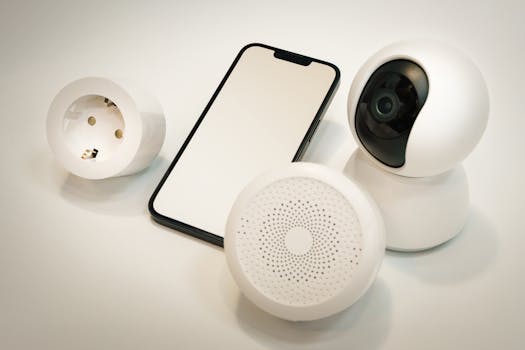
Smart Homes and Smart Living: The Technological Transformation of European Homes by 2025
Smart Homes and Smart Living are revolutionizing the way we live, making our homes more comfortable, convenient, and sustainable. As we approach 2025, the European housing market is expected to witness a significant shift towards smart homes, with an estimated 50% of households adopting smart home technology.
Introduction to Smart Homes
Smart homes are residences that integrate advanced technology to provide a seamless and automated living experience. These homes are equipped with devices and systems that can be controlled remotely, using a smartphone or voice assistant, to manage lighting, temperature, security, and entertainment.
Benefits of Smart Homes
The benefits of smart homes are numerous, ranging from energy efficiency and cost savings to increased security and convenience. Some of the key benefits include:
- Energy Efficiency: Smart homes can optimize energy consumption by automatically adjusting lighting and temperature settings.
- Cost Savings: Smart homes can help reduce energy bills and extend the lifespan of devices and appliances.
- Increased Security: Smart homes can enhance security with advanced surveillance systems and real-time alerts.
- Convenience: Smart homes can simplify daily tasks, such as controlling lighting and temperature, with voice commands or smartphone apps.
Technological Transformation of European Homes
By 2025, European homes are expected to undergo a significant technological transformation, with the integration of Internet of Things (IoT) devices, artificial intelligence (AI), and machine learning (ML). This transformation will enable homes to become more responsive, adaptive, and sustainable.
The key drivers of this transformation include:
- Government Initiatives: European governments are launching initiatives to promote the adoption of smart home technology and reduce energy consumption.
- Technological Advancements: Advances in IoT, AI, and ML are making smart home technology more affordable, accessible, and user-friendly.
- Changing Consumer Behavior: Consumers are becoming more aware of the benefits of smart homes and are driving demand for smart home devices and systems.
Future of Smart Homes in Europe
By 2025, smart homes will become the norm in Europe, with an estimated 75% of new homes being built with smart technology integrated. The future of smart homes will be shaped by emerging trends, such as:
- Edge Computing: The integration of edge computing will enable faster processing and analysis of data, making smart homes more responsive and efficient.
- 5G Connectivity: The rollout of 5G networks will provide faster, more reliable connectivity, enabling seamless communication between devices and systems.
- Sustainable Living: Smart homes will play a critical role in promoting sustainable living, with features such as energy harvesting, recycling, and waste management.






